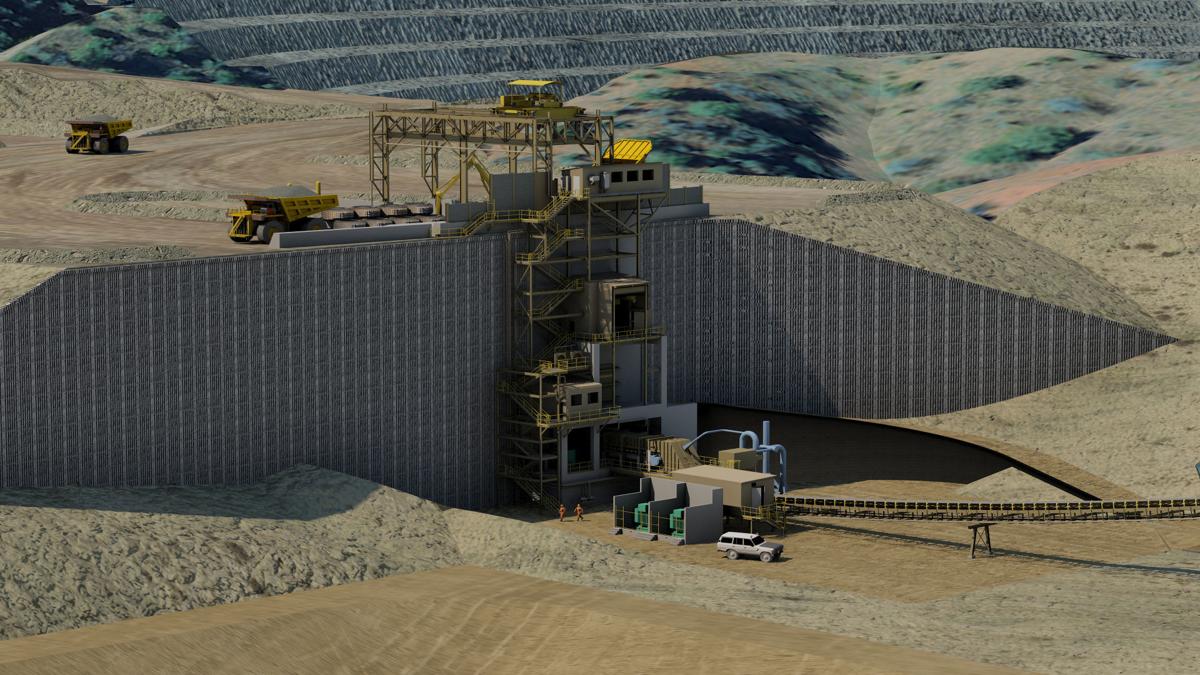The leading national mining industry trade and lobbying group says it’s open to discussion of changes to the 1872 Mining Law, but it considers most past proposed reforms “so punitive that they are nonstarters.”
In responding to comments on the law from a former Coronado National Forest supervisor, the National Mining Association says that despite the lack of federal hard rock mining royalties, mining companies pay plenty in taxes to all levels of government and in royalties to state and local agencies.
In response to retired Coronado Forest Supervisor Jim Upchurch’s concern that the Forest Service can’t look broadly enough at all the impacts caused by a mine, the association notes that mining already comes under a huge array of federal environmental regulations.
Also, the U.S. government’s process for securing a permit to mine on federal lands is one of the longest in the world, the association says.
Upchurch’s interview with the Arizona Daily Star and the association’s response come as the U.S. House Natural Resources Committee is considering a bill to significantly change the 1872 law.
Co-sponsored by Committee Chairman Raúl Grijalva, a Tucson Democrat, the bill would eliminate the current system of staking mining claims on federal land. A hearing has been held but the bill is not yet scheduled for a committee vote.
New mining operations would pay a 12.5% royalty on the value of their minerals and all but the smallest existing mines would pay 8%. Certain special areas such as the Grand Canyon and Bears Ears National Monument would be declared permanently off limits to mining.
Strong mining reclamation standards would be imposed. A fund would be created to reclaim and restore abandoned mines and areas impacted by mining.
“Our public lands, watersheds and treasured landscapes belong to the American people, not polluters who don’t always cover their own cleanup costs,” Grijalva said when the bill was introduced in May. “Sweetheart deals for the mining industry come at a heavy cost for communities and taxpayers across the country. There’s no good reason to keep giving away our public resources like this, and there’s certainly no reason to make taxpayers pay for deadbeat companies’ cleanups. It’s time to put people over polluters and bring our natural resources economy into the 21st century.”
Here are several points the association made in response to Upchurch’s comments and about mining law reform in general:
- Royalties: The U.S. hard rock mining industry — which doesn’t include coal mining — pays 40% to 50% of its total earnings in nonfederal royalties and in federal state and local taxes, says an analysis presented in 2017 congressional testimony by an industry lawyer.
In 2017, the entire U.S. mining industry generated about $17 billion in federal, state and local tax revenue and a total of $42 million in direct and indirect tax revenues, the association says.
Federal royalty proposals that it’s seen will go far beyond what’s charged in other countries, “significantly impairing our global competitiveness and making investments in the U.S. far less attractive,” the association says.
- Ability to say no. The Forest Service has the right to say “no” to a mine, the association says, adding, “The Forest Service will not issue permits if the applicant cannot demonstrate compliance with the numerous design and operational requirements. The Forest Service’s regulations are designed to minimize adverse environmental impacts during and after operations.”
(Upchurch acknowledged that the service can say no to a mining proposal that would violate federal laws, but said the agency is hampered by the lack of ability to say no to a mine on a site it believes isn’t appropriate for mining.)
- Ability to look at and mitigate for all impacts of mining: The (1872) “law is not an environmental statute. It is complemented by exhaustive federal and state environmental, ecological, reclamation and financial assurance laws and regulations to ensure that operations fully protect public health and safety, the environment, and wildlife,” the association says.
“Mining operations operating on federal land, including Forest Service land, must obtain a federal plan of operations. This plan is scrutinized under the National Environmental Policy Act, usually requiring the preparation of an environmental impact statement, which evaluates potential environmental impacts of the mining operation, assesses alternatives, and requires the identification of mitigation measures to reduce potentially significant environmental impacts.”
- Timetable for approving new mines: “The U.S. government’s process for securing the necessary mine permits — examining nearly every aspect of a project — is exhaustive and it now regularly takes 10 years or more — one of the longest mine permitting processes in the world.”





